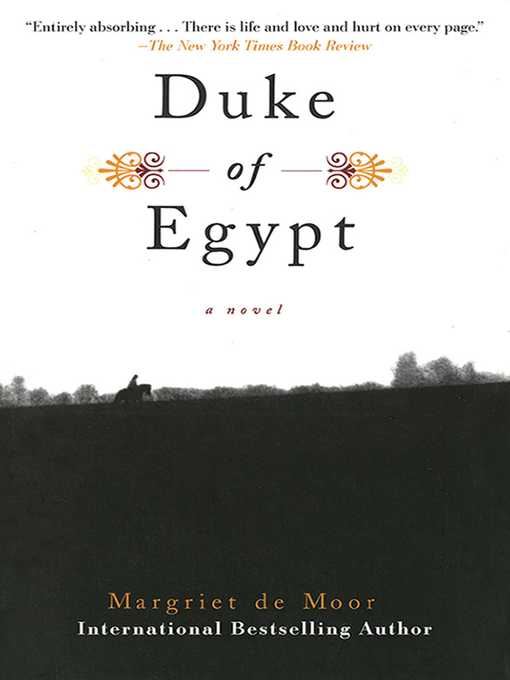
Duke of Egypt
A Novel
- اطلاعات
- نقد و بررسی
- دیدگاه کاربران
نقد و بررسی

January 7, 2002
De Moor has crafted this complex novel as if she were the composer of a piece of haunting chamber music, orchestrating the heartaches, loves, fortunes and losses of a wandering gypsy whose family is torn apart by the cruelty of post-WWII Europe, and who experiments with creating a different life for himself. As the novel begins, it is 1963, and 27-year-old Joseph Andrias's travels with his family caravan are about to be interrupted. On a wet summer day in a bar in Benckelo, in the Twente countryside of eastern Holland, he meets Lucie, a strange, wild redhead, who lives with her father, Gerard, on a horse farm outside town. It is love at first sight for this unlikely pair, who marry and have three children. Joseph and Lucie share a deep-rooted passion, a vast knowledge of horses and the desire to build a profitable stable. Despite the success of his marriage, however, Joseph cannot escape his heritage and the need to break free every summer, a practice that his wife never interferes with. Where he goes on his travels remains a mystery that is only gradually revealed in the grand tales he spins for Lucie, chronicling the heroic wartime deeds of his mother, Gisela; the family patriarch, Nikolaus Adrias Plato; and Jannosch Franz, a resistance fighter with a strange tie to Lucie's father, Gerard. The intricate, carefully calculated counterpoint of de Moor's narrative weaves the strands of many stories into a single glittering whole, illuminating the fate of gypsies in modern times and making a beautiful mosaic out of highly colored bits and fragments.

November 15, 2001
This novel, originally published in Europe in 1996, and translated from the Dutch in 2000, is the latest in de Moor's string of six international best-sellers. It is both a love story, extending from the end of World War II to the early 1960s, and an indictment of the persecution of the gypsies throughout the war. A gypsy arrives in a village in eastern Holland after the war, immediately falling in love with a young woman with fiery red hair and a knack with horses. Their marriage is marked by his absences, his betrayals, and her revenge. The gypsy lover-husband brings the reader to an understanding of the enormity of the gypsies' massacre, in details horrifying in their casual, deadpan delivery. All this is narrated by someone whose identity is kept secret till near novel's end, an identity that adds to the shock of the story. De Moor's economy of style underscores her tragic, yet inspiring, tale.(Reprinted with permission of Booklist, copyright 2001, American Library Association.)




دیدگاه کاربران